November 6, 2017 •
Four Federal By-Elections to be Held December 11
On November 5, Elections Canada announced several by-elections for the House of Commons will be held on December 11. The federal by-elections will be held for the electoral districts of Battlefords–Lloydminster (Saskatchewan), Bonavista–Burin–Trinity (Newfoundland and Labrador), Scarborough–Agincourt (Ontario), and South […]
 On November 5, Elections Canada announced several by-elections for the House of Commons will be held on December 11. The federal by-elections will be held for the electoral districts of Battlefords–Lloydminster (Saskatchewan), Bonavista–Burin–Trinity (Newfoundland and Labrador), Scarborough–Agincourt (Ontario), and South Surrey–White Rock (British Columbia) to fill vacancies in the House of Commons.
On November 5, Elections Canada announced several by-elections for the House of Commons will be held on December 11. The federal by-elections will be held for the electoral districts of Battlefords–Lloydminster (Saskatchewan), Bonavista–Burin–Trinity (Newfoundland and Labrador), Scarborough–Agincourt (Ontario), and South Surrey–White Rock (British Columbia) to fill vacancies in the House of Commons.
Battlefords–Lloydminster (Saskatchewan) MP Gerry Ritz resigned on August 31 in order to retire from politics.
Bonavista–Burin–Trinity (Newfoundland and Labrador) MP Judy Foote resigned Bonavista-Burin-Trinity in September. Foote has been on leave since April for personal family medical reasons. In August, she had resigned her position as Minister of Public Services and Procurement.
The seat for Scarborough–Agincourt (Ontario) became vacant on September 14 when MP Arnold Chan died at the age of 50 of cancer after a three-year battle.
South Surrey–White Rock (British Columbia) MP Dianne Watts resigned to run for the provincial Liberal leadership.
October 31, 2017 •
Bill Introduced Banning Corporate Contributions in British Columbia’s Municipal Elections
On October 30, a bill was introduced in the Legislative Assembly of British Columbia banning corporate and union political contributions for local elections in the Canadian province. Bill 15, Local Elections Campaign Financing Amendment Act, 2017, was introduced by Municipal […]
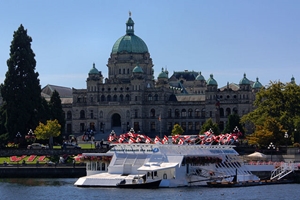 On October 30, a bill was introduced in the Legislative Assembly of British Columbia banning corporate and union political contributions for local elections in the Canadian province. Bill 15, Local Elections Campaign Financing Amendment Act, 2017, was introduced by Municipal Affairs Minister Selina Robinson.
On October 30, a bill was introduced in the Legislative Assembly of British Columbia banning corporate and union political contributions for local elections in the Canadian province. Bill 15, Local Elections Campaign Financing Amendment Act, 2017, was introduced by Municipal Affairs Minister Selina Robinson.
Among other related changes, the legislation also caps contributions from individual donors to $1,200 for the 2018 elections with contribution limits then indexed for inflation in sequent election years. If passed, the law would be in effect for British Columbia’s October 28, 2018, municipal elections and would be retroactive to October 31, 2017.
October 30, 2017 •
Lobbying Law May Be Considered by Halifax Regional Council
On October 31, the Regional Council of Halifax, Nova Scotia will begin the first steps to considering a lobbying ordinance for the city. Councillor Shawn Cleary is scheduled to “request a staff report with recommendations for the creation and maintenance […]
 On October 31, the Regional Council of Halifax, Nova Scotia will begin the first steps to considering a lobbying ordinance for the city.
On October 31, the Regional Council of Halifax, Nova Scotia will begin the first steps to considering a lobbying ordinance for the city.
Councillor Shawn Cleary is scheduled to “request a staff report with recommendations for the creation and maintenance of a municipal lobbyist registry, which should include a regular, transparent reporting process, and contains a jurisdictional scan for best practices in other municipal, provincial and federal governments,” according to the agenda for the meeting.
Currently, there is no lobbyist registry for the city of Halifax. “I’m not saying we’re going to be the most open and transparent government in the world, but simply by having a registry, even if it’s updated infrequently, is better than not having one at all. Are we going to have the Cadillac of registries? No. But can we have a Chevy? Maybe,” Cleary told the Halifax website The Coast.
Cabinet Ministers and other public officer holders in British Columbia will be prohibited from lobbying the government of British Columbia for two years after leaving office under a bill proposed in the legislature this week. Attorney-General David Eby, who announced […]
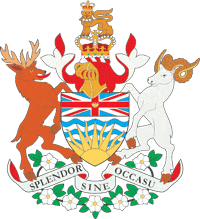 Cabinet Ministers and other public officer holders in British Columbia will be prohibited from lobbying the government of British Columbia for two years after leaving office under a bill proposed in the legislature this week. Attorney-General David Eby, who announced the legislation, said the legislation is intended to “restore public confidence,” according to The Globe and Mail.
Cabinet Ministers and other public officer holders in British Columbia will be prohibited from lobbying the government of British Columbia for two years after leaving office under a bill proposed in the legislature this week. Attorney-General David Eby, who announced the legislation, said the legislation is intended to “restore public confidence,” according to The Globe and Mail.
The prohibition in the bill applies to former public office holders, which the legislation defines as a former member of the Executive Council and any individual formerly employed in the former member’s former office, other than administrative support staff, or a former parliamentary secretary.
Those listed in the definition also includes any individual who formerly occupied either a senior executive position in a ministry, the position of associate deputy minister, assistant deputy minister or a position of comparable rank in a ministry, or a prescribed position in a Provincial entity.
September 25, 2017 •
4th Legislative Assembly of Nunavut Adjourns as Writ for October Election Issued
Today, the writ for the October 30 general election for all 22 Legislative Assembly Members’ seats is being issued after the Legislative Assembly of Nunavut was dissolved on September 24. The order for the writ and the dissolution of the […]
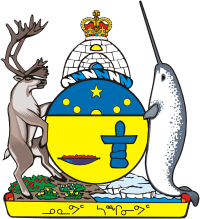 Today, the writ for the October 30 general election for all 22 Legislative Assembly Members’ seats is being issued after the Legislative Assembly of Nunavut was dissolved on September 24.
Today, the writ for the October 30 general election for all 22 Legislative Assembly Members’ seats is being issued after the Legislative Assembly of Nunavut was dissolved on September 24.
The order for the writ and the dissolution of the 4th Legislative Assembly of Nunavut was made pursuant to a Proclamation issued by the Commissioner of Nunavut. The 5th Legislative Assembly will convene on a future date not yet determined.
The pre-election period for prospective candidates began on June 27 and ended on September 25. This election will be the first time Nunavummiut born after the creation of Nunavut, on April 1, 1999, and who are 18 will be eligible to vote.
September 19, 2017 •
British Columbia Campaign Finance Bills Bans Corporation Contributions
On September 18, British Columbia’s Attorney General David Eby submitted a new campaign bill in the Legislative Assembly that would prohibit corporation and union contributions and limit contributions from individuals to $1,200 a year. The Election Amendment Act, 2017, would […]
 On September 18, British Columbia’s Attorney General David Eby submitted a new campaign bill in the Legislative Assembly that would prohibit corporation and union contributions and limit contributions from individuals to $1,200 a year.
On September 18, British Columbia’s Attorney General David Eby submitted a new campaign bill in the Legislative Assembly that would prohibit corporation and union contributions and limit contributions from individuals to $1,200 a year.
The Election Amendment Act, 2017, would also ban out-of-province donations, place a cap on contributions to third-party election advertisers, reduce campaign spending limits for candidates and political parties, provide some public funding for political parties, create new fines and penalties, and require public reporting and set donation limits for specified fundraising functions.
The bill defines “specified fundraising function” to mean a fundraising function attended by a member of the Executive Council, a parliamentary secretary, or a leader of a major political party, and that is held to raise funds for a major political party, a candidate who is a representative of a major political party, a leadership contestant for a major political party, or a constituency association that is the local organization for a major political party.
September 18, 2017 •
Elections Canada: House of Commons By-election Date is October 23
On September 17, Elections Canada announced two by-elections for the House of Commons will be held on October 23. The by-elections will be held for the electoral districts of Sturgeon River–Parkland in Alberta and the Lac-Saint-Jean in Quebec. Advance voting […]
 On September 17, Elections Canada announced two by-elections for the House of Commons will be held on October 23.
On September 17, Elections Canada announced two by-elections for the House of Commons will be held on October 23.
The by-elections will be held for the electoral districts of Sturgeon River–Parkland in Alberta and the Lac-Saint-Jean in Quebec. Advance voting will run from the 13th to the 16th of October.
MP Rona Ambrose of Sturgeon River-Parkland resigned from politics in July.
MP Denis Lebel of Lac-Saint-Jean announced his retirement in June.
September 6, 2017 •
Writ for Nunavut October 30 Election to be Issued September 25
On September 25, the writ for the October 30 general election for all 22 Legislative Assembly Members’ seats will be issued. The pre-election period for prospective candidates began on June 27 and will end on September 25. This election will be the […]
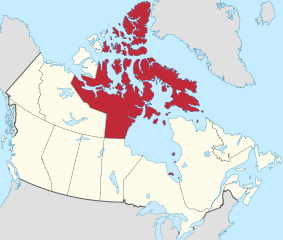 On September 25, the writ for the October 30 general election for all 22 Legislative Assembly Members’ seats will be issued.
On September 25, the writ for the October 30 general election for all 22 Legislative Assembly Members’ seats will be issued.
The pre-election period for prospective candidates began on June 27 and will end on September 25.
This election will be the first time Nunavummiut born after the creation of Nunavut, on April 1, 1999, and who are 18 will be eligible to vote.
On October 2, a provincial byelection will be held in the Quebec City riding of Louis-Hébert for the Quebec National Assembly. The election will be held to fill the vacant seat of former Member of the National Assembly Sam Hamad, […]
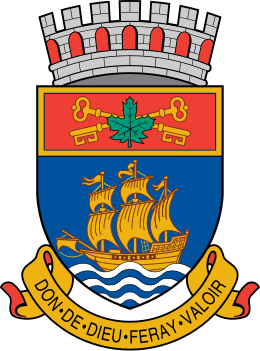 On October 2, a provincial byelection will be held in the Quebec City riding of Louis-Hébert for the Quebec National Assembly.
On October 2, a provincial byelection will be held in the Quebec City riding of Louis-Hébert for the Quebec National Assembly.
The election will be held to fill the vacant seat of former Member of the National Assembly Sam Hamad, who resigned in April to return to private life.
The election will fill the only remaining vacant seat in the National Assembly.
August 28, 2017 •
Saskatchewan MLA Boyd, in Violation of Conflict of Interest Act, Resigns from Party Caucus Five Days Before Scheduled to Resign from Legislative Assembly
On August 28, Member of the Legislative Assembly (MLA) Bill Boyd resigned from the Saskatchewan Party Caucus, even though Boyd previously announced his resignation from the Legislative Assembly will be on Friday, September 1. Boyd resigned at the request of […]
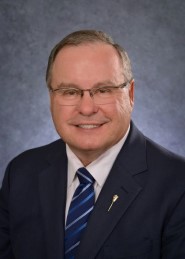 On August 28, Member of the Legislative Assembly (MLA) Bill Boyd resigned from the Saskatchewan Party Caucus, even though Boyd previously announced his resignation from the Legislative Assembly will be on Friday, September 1.
On August 28, Member of the Legislative Assembly (MLA) Bill Boyd resigned from the Saskatchewan Party Caucus, even though Boyd previously announced his resignation from the Legislative Assembly will be on Friday, September 1.
Boyd resigned at the request of Premier Brad Wall, whose request was based on the Conflict of Interest Commissioner’s finding Boyd violated the Conflict of Interest Act when Boyd inaccurately represented himself and the Government of Saskatchewan while on business in China.
MLA Boyd, who represents the Kindersley electoral district, was last elected in 2016 and had already announced earlier this month he was retiring on September 1, giving the reason that allowing a new MLA could be part of the Saskatchewan Party’s renewal.
August 28, 2017 •
Trudeau’s Minister of Public Services and Procurement Resigns
On August 24, Minister of Public Services and Procurement Judy Foote announced her resignation from Prime Minister Justin Trudeau’s cabinet. Foote will remain as a member of Parliament for the time being until the House of Commons resumes in September. […]
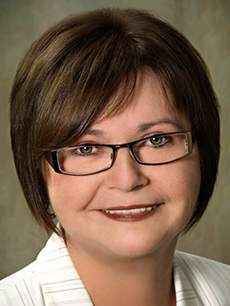 On August 24, Minister of Public Services and Procurement Judy Foote announced her resignation from Prime Minister Justin Trudeau’s cabinet. Foote will remain as a member of Parliament for the time being until the House of Commons resumes in September.
On August 24, Minister of Public Services and Procurement Judy Foote announced her resignation from Prime Minister Justin Trudeau’s cabinet. Foote will remain as a member of Parliament for the time being until the House of Commons resumes in September.
Since April, Foote, who represents Newfoundland and Labrador for the federal electoral district of Bonavista—Burin—Trinity, has been on leave for personal family medical reasons.
A video of Foote’s announcement of her resignation can be found here or viewed below.
Legislation to be submitted this fall may require increased reporting requirements for third parties involved in Canadian federal elections. Minister of Democratic Institutions Karina Gould, speaking with the National Post, suggested “her office is ‘looking at’ expanding reporting requirements beyond […]
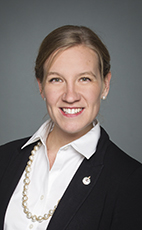 Legislation to be submitted this fall may require increased reporting requirements for third parties involved in Canadian federal elections.
Legislation to be submitted this fall may require increased reporting requirements for third parties involved in Canadian federal elections.
Minister of Democratic Institutions Karina Gould, speaking with the National Post, suggested “her office is ‘looking at’ expanding reporting requirements beyond the six-month lead-up.” This and other changes to election law may be presented as legislation to the Parliament of Canada later this year.
Another proposed piece of legislation includes changing the time limit on election campaigns. Two previous pieces of campaign finance legislation, Bill C-33 and Bill C-50, are currently still in parliament.
Gould indicated there may be an additional election law related bill submitted, but stated, “I don’t want to present too many pieces of legislation,” according to the National Post.
August 15, 2017 •
Saskatchewan September Special Election to Fill Vacant MLA Seat
On August 11, Saskatchewan Premier Brad Wall called a special election to fill the vacancy left by the resignation of Member of the Legislative Assembly (MLA) Jennifer Campeau. MLA Campeau resigned in June from the Legislative Assembly to work for […]
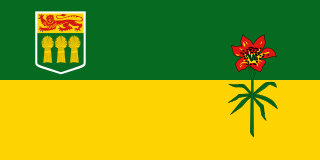 On August 11, Saskatchewan Premier Brad Wall called a special election to fill the vacancy left by the resignation of Member of the Legislative Assembly (MLA) Jennifer Campeau.
On August 11, Saskatchewan Premier Brad Wall called a special election to fill the vacancy left by the resignation of Member of the Legislative Assembly (MLA) Jennifer Campeau.
MLA Campeau resigned in June from the Legislative Assembly to work for Rio Tinto, a mining company in British Columbia.
The riding of Saskatoon Fairview will be held on September 7.
August 14, 2017 •
Saskatchewan Premier Brad Wall to Leave Politics
In a video posted on YouTube, Saskatchewan Premier Brad Wall announced he is retiring from politics. Wall will be leaving his office once the conservative Saskatchewan party, which controls the Legislative Assembly, selects a new leader. In the video, posted […]
In a video posted on YouTube, Saskatchewan Premier Brad Wall announced he is retiring from politics.
Wall will be leaving his office once the conservative Saskatchewan party, which controls the Legislative Assembly, selects a new leader.
In the video, posted on August 10 and entitled “Thank you, Saskatchewan,” Wall said, “Saskatchewan needs renewal: a fresh perspective in leadership.”
View the video below:
State and Federal Communications, Inc. provides research and consulting services for government relations professionals on lobbying laws, procurement lobbying laws, political contribution laws in the United States and Canada. Learn more by visiting stateandfed.com.


